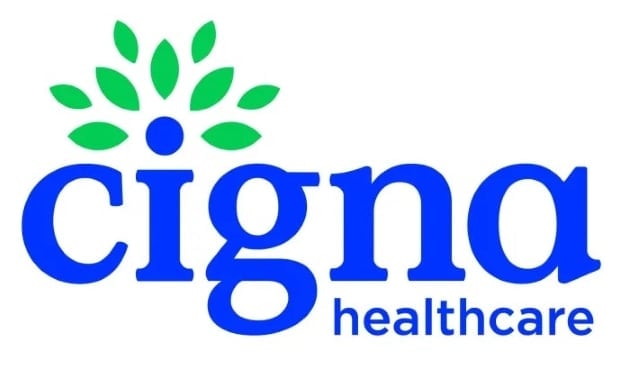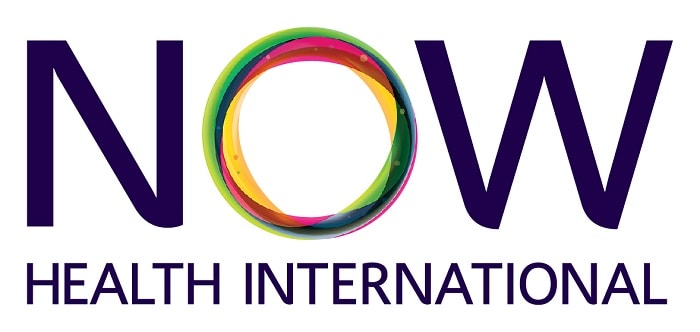Health insurance is a major concern for everyone living in the United States since healthcare costs in the country are among the highest in the world.
Making matters more complicated is that each state has different rules and regulations when it comes to health insurance.
For example, if you live in the state of New York, you might not be able to get international insurance because of the state’s regulations. But if you live in California, you can get international insurance.
With that said, this guide to health insurance in the United States will show you the public and private health insurance options available to you, the premiums you can expect to pay, and the steps you need to take to find the best coverage for your needs.
This way, when you have a medical emergency while living in the US, you won’t be stuck with having to pay hundreds of thousands of dollars out-of-pocket.
Why Do You Need It?
People have different reasons for getting health insurance. Some want it to safeguard their pockets. Some want it to have extra peace of mind. Some want it so that they can visit a hospital without having to pay large medical bills.
When it comes to most expats living in the United States, here are the top two reasons why they get health insurance:
Medical Costs are Too High to Pay Out-of-Pocket
Any expat traveling long distances or commuting back and forth to work has the same capacity to injure themselves.
In the U.S., that translates into money being spent on one of the costliest commodities in the country—healthcare.
For example, when I was treated by an orthopedic doctor, I only had one consultation and was told to rest my leg. I was billed $600 for X-rays and the visit. Luckily, I was insured.
I didn’t have to pay any of that money out of my pocket.
If you spend one day in the hospital, it’s going to cost you a minimum of $3,949 on average. If you need a hospital stay, you could pay $13,262 on average for just one day, depending on the care you receive.
If you don’t want to pay that amount of money out of your pocket, health insurance is something you should consider.
Anyone Can Get Injured
You may think you’re healthy and not prone to accidents. You could chance it and not get coverage. Just remember—anything could happen.
One time, I took a plane to see my brother and his family for a holiday. I had a great time, but on the return trip, I was only a few minutes from exiting the plane when the unthinkable happened.
My mother had to make an emergency run to the bathroom, so I stood abruptly to let her squeeze by me and heard, POP! I displaced my patellar tendon in my knee.
When the tendon moved, I couldn’t put any weight on it. I only had one useful leg.
To make matters worse, I had to be carried off the plane and rolled around in a wheelchair to get through the airport.
It took a little over a month to walk again without a cane or a brace. Before that, I had been a perfectly healthy specimen, one minute healthy and the next minute unable to walk.
Luckily, I worked from home before the incident, so I didn’t miss any work. But my mobility was severely limited. Sitting or rising from a seated position was especially difficult.
HMO, PPO, and POS
When searching for insurance in the U.S., you will come across HMO, PPO, and POS.
Here’s what they mean in summary:
- HMO stands for Health Maintenance Organization. HMO Plans are considered affordable plans. You choose a Primary Care Physician (PCP) from the HMO network and go there for medical treatment.
- PPO stands for Preferred Provider Organization. With this plan, you won’t need to choose a PCP and can go to any hospital or doctor as long as it’s a) under your insurance network or b) you pay additional costs out of pocket. However, premiums are more expensive.
- POS stands for Point of Service. It’s basically a combination of HMO and PPO plans. You still have to choose a PCP and can get treated at other medical facilities in the POS network.
Health Insurance Options
You have many options as an expat living in the United States, including:
- International insurance
- Private insurance
- Public insurance
- Group insurance
- Travel insurance
Let’s take a look at each option.
International Insurance
International insurance is popular for expats who live in the United States. It’s also generally known as offshore insurance or expat insurance.
As the name suggests, this type of insurance is created mainly for expats. It is also the type of insurance I recommend that any expats in the United States get.
One of the best things about international insurance is that it comes with worldwide coverage.
What this means to you is that you can have the insurance company pay for your medical treatment wherever you are in the world, including your home country.
Also, international insurance has a lot of plans and options. It’s possible to customize your own plan by choosing the:
- coverage limit
- area of coverage
- deductible
- copay
You can also keep the plan if you leave the U.S.
However, many international insurance plans consider U.S. coverage as additional coverage, which significantly increases your premiums.
Still, it’s a popular option for expats who live in the United States.
Here’s a quick rundown of the pros and cons of international insurance.
Pros
- Anyone can get it.
- You can keep the plan even after you move out of the U.S.
- You can get treatment anywhere in the world as long as it’s listed in your coverage area.
- You can talk to a customer service representative in your native language.
- You can visit many leading private hospitals in the United States and have your insurance pay for it.
- Plans and providers can be customized to your needs.
Cons
- Depending on your plan, the insurance premium can be the most expensive of all insurance options.
- You need a deep understanding of what you get to experience the benefits of international insurance.
International Insurance Companies
Let’s take a closer look at popular insurance companies providing international health insurance to expats in the United States.
GeoBlue
International insurance plans provided by GeoBlue are generally recommended for expats who need coverage in the U.S and U.S. citizens living abroad because of their extensive network and prices.

They partnered with Blue Cross Blue Shield, which has a large network in the U.S. across all fifty states.
Its network is so big that a third of the American population is under its health coverage.
GeoBlue has traditionally been very generous regarding maximum medical coverage and carries no extreme sports exclusions.
Moreover, GeoBlue plans are affordable. You can read our review of GeoBlue to find out more info.
Cigna Global
Cigna Global is a well-known international insurance company for expats. Wherever you are in the world, you’ll hear many expats talking about them.

One of the main reasons people go with Cigna is because of how comprehensive and customizable its plans are.
You can choose what coverage you need and what you don’t to come up with the perfect plan.
They also have good customer service and a worldwide network.
Although their plans are not the cheapest in the market, they’re competitive in terms of premium per coverage.
Also, Cigna’s plans don’t have age restrictions.
Here’s what you usually need to do when getting insurance from Cigna Global.
- Choose your plan: Silver, Gold, or Platinum.
- Select your area of coverage: the world, including the U.S., or the world excluding the U.S. With U.S. coverage, the cost rises significantly.
- Add or omit services, tailoring your plan: International Outpatient; International Medical Evacuation (offering free transport to healthcare facilities in other regions when necessary); International Health and Wellbeing; and International Vision and Dental.
- Choose between the available cost-sharing and deductible options.
Cigna offers international coverage in more than 200 jurisdictions.
Having been in business for 30 years, its coverage compensates more than 1.65 million medical professionals and facilities.
You can read our Cigna Global review for more information.
IMG
International Medical Group (IMG) offers the Global Medical Insurance plan for expats living abroad.

IMG’s international insurance plans are affordable because you can choose your deductibles—from US$100 to US$25,000—and that significantly decreases your premiums.
Please note that if you go to the hospital outside of their medical network, IMG will only pay 80% of the next US$5,000 of eligible expenses before they pay everything in full, as long as it’s under your plan limits.
You can get lifetime coverage when you apply to their plans before turning 65 years old and maintain it until you are 75 years old.
Then, you will be enrolled in their Global Senior plan, which provides health coverage until death.
IMG has a 15-day free look period. Upon review of the policy, you can reject it within 15 days and get a full refund of premiums paid.
NOW Health
NOW Health is an international insurance company based in Hong Kong.
Its international health insurance plan—called WorldCare Plan—offers four different coverage levels.

- WorldCare Essential covers inpatient/day-patient care with an annual limit of US$3,000,000. It’s a basic plan for those who need health insurance only when necessary, since it doesn’t cover outpatient coverage.
- WorldCare Advance is somehow similar to WorldCare Essential. However, it comes with a higher annual limit of US$3,500,000, out-patient coverage, and additional coverage on doctor visits, physiotherapy, and other alternative treatments.
- WorldCare Excel is an upgraded version of the Advance plan, coming with US$4,000,000 limits and dental coverage.
- WorldCare Apex is its highest plan. It comes with coverage of US$4,500,000 and now covers routine maternity care.
All of NOW Health’s plans come with deductibles and co-pay options.
Another good thing about NOW Health is its online application, where you can file your claim online in under five days.
AXA Global HealthCare
AXA Global HealthCare provides different international insurance plans for different types of expats.

It provides specific plans for students, tourists, and those who want insurance with short-term coverage for 3 to 11 months.
Like most international insurance providers, getting the U.S. coverage will increase the insurance premiums.
One good point about international health insurance plans from AXA Global Healthcare is that all plans, except the Foundation plan, come with dental care coverage, which is generally not provided by other insurance providers.
However, it doesn’t cover you for chronic disease unless you purchase the Comprehensive plans or higher.
Let’s take a closer look at all of AXA’s plans.
- The Foundation plan comes with an annual limit of US$160,000. Although it’s their most affordable plan, the coverage limit isn’t enough for expats in the United States and other parts of the U.S.
- You should at least get the Standard plan if you want to go with AXA. It comes with an annual limit of US$1,600,000 but doesn’t cover chronic conditions.
- The Comprehensive plans come with US$2,400,000 annual limits. It includes chronic conditions and also vision coverage.
- The Prestige and Prestigive Plus are their highest plans. It has an annual limit of US$3,200,000 and US$8,000,000, respectively, and covers most medical conditions, including health checks and maternity care. It also comes with travel insurance coverage for lost baggage and cancellation.
There’s an excess option if you want to decrease your premium. You can also get a five percent discount when paying your insurance on an annual basis.
IntegraGlobal
IntegraGlobal is a smaller insurance company based in the U.K.
Although it has several international insurance plans, only the YourLife and Premiere Life plans are available for expats in the U.S.

Its health insurance plans also come with many limitations, including:
- Lifetime limits of US$2,500,000 unless you go with the Premier Life plan, which is its highest plan.
- The choice of a semi-private room if you go with the YourLife plan. If you want the option for private rooms, Premiere Life is your pick.
- A 10% out-of-pocket fee for many treatments, including IPD treatment, ICU, scans, and surgeon’s fee—unless you go with the Premiere Plan.
- The lack of choice of where to get treated. To receive medical coverage in the US, you have to go to a doctor or hospital partnered with UnitedHealthcare.
However, being a smaller insurance company, it can be more flexible and personalized than other major insurance providers.
Other
In addition to the international health insurance companies mentioned above, there are also other insurance providers in the market, including:
International Insurance Exclusions
Health coverage provided by international insurance doesn’t include all expenses.
Certain conditions exclude your coverage. They are called exclusions.
Let’s take a look at common exclusions set by many private insurance providers:
- Pre-existing conditions (some may cover you for higher premiums)
- Developmental disorders like dyslexia, autism, short height, and obesity
- Male or female fertilization or surrogacy
- Injuries received in war or combat-related circumstances
- Illnesses related to drug or alcohol abuse
- Neurological damage resulting in the patient being in a vegetative state beyond 90 days
- Sexual dysfunction
- Cosmetic surgery or reconstructive surgery ,,unless medically necessary (most cover reconstructive surgery for breasts after breast cancer surgery)
- Treatment for personality disorders: schizoid, histrionic, and histrionic personality disorders
- Sex change operations and related treatments
In most cases, you must inform the insurance company in advance before visiting a hospital. Otherwise, the insurance company may not pay.
Notifying the insurance company in advance is especially important for expensive treatments. Not only do you get prior approval from them, but they can also recommend a hospital and doctor you should meet who specializes in your sickness.
You can find a complete list of exclusions in the fine print of your plan. You should read it carefully to make sure that you’re covered for the things you want.
Waiting Periods
A waiting period is how long you have to wait before coverage on your insurance plan kicks in.
For example, many insurance companies have a 10-month waiting period for maternity care. This means you need to keep your plan for at least 10 months before they start paying for your maternity treatment.
Different sicknesses have different waiting periods. For example, COVID-19 coverage may only come with a 14-day waiting period, while organ transplants may come with a waiting period of two years.
In addition, different insurance companies have different policies on which sickness comes with the waiting period.
Some companies may have a waiting period for COVID-19, while others may cover it right away.
Reading the plan’s fine print is the best way to find out.
Optional Coverage
When you buy your international insurance, you can choose to pay more to get additional coverage that doesn’t ordinarily come with your plan—it’s called optional coverage.
Here’s a list of common optional coverage:
- Out-patient treatment
- Dental care
- Vision care
- Health checkups
- Vaccinations
- Alternative treatment
Comparing International Health Insurance
Since there are many international insurance plans from different providers available, a good way to compare plans is to use a brokerage website.
One such website is International Citizens Insurance, an insurance brokerage company from Boston specializing in international insurance for expats.
After you fill out the form, they will send you quotes from different providers. You can tell them what you need and let them find a suitable plan for you.
A brokerage company won’t charge you anything for using its service. It gets a commission from the insurance company.
Also, the price you pay is the same as when buying directly through an insurance company.
Alternatively, you can contact each international insurance company and get quotes for each plan, although this will take a lot longer.
Local Private Insurance
When it comes to local private insurance for expats in Uthe nited States, you usually have two options:
- State’s Health Marketplace
- Private companies

If you live in New York. Plans available from New York State of Health Marketplace are for low-income workers or lawfully present immigrants, such as students, workers, and Green Card holders.
You can check the official website of New York to find out more about the definition of lawfully present immigrants.
Each state has different requirements for those who can purchase insurance from the State’s Health Marketplace.
Alternatively, there are private insurance plans that you can buy directly from insurance companies or insurance brokers.
The main limitation of private insurance is that it’s only valid within the U.S. This means you’ll need to buy a new insurance plan if you leave the country.
However, if you have any chronic disease during your stay in America, the new insurer might exclude your pre-existing condition.






0 Comments